Amanda Licastro
Grant Writing for Humanists
On 11, Mar 2015 | In Uncategorized | By Amanda Licastro
Please join the CUNY Digital Humanities Initiative, the English Program, and the Futures Initiative in welcoming Dr. Jennifer Guiliano, who will lead a grant writing workshop specifically aimed towards scholars working in the humanities.
This event will take place Friday, April 24th, at 2pm in the English Program Lounge (4406) at the Graduate Center, CUNY. RSVP recommended: https://www.eventbrite.com/e/grant-writing-for-humanists-tickets-16105258261.
Designed for humanities scholars seeking assistance with writing grants, this workshop introduces participants to best practices in writing and submitting a grant. This workshop will allow participants to work through key grant writing concepts, understand the process of developing successful grants, and allow them the opportunity to engage with a series of online resources, including presentations, exemplar successful grants, and podcasts that will position them to be successful in their grant-writing. A combination of lecture and hands-on, the workshop will result in a map for attendees to follow to complete their first (or improve their existing) grant.
Recommended: BYODevices and abstracts or materials for your current project. Collaborative projects welcome!
 Jennifer Guiliano is Assistant Professor in the Department of History at the Indiana University-Purdue University Indianapolis. She has served as a Post-Doctoral Research Assistant and Program Manager at the Institute for Computing in Humanities, Arts, and Social Sciences at the National Center for Supercomputing Applications (2008-2010) and as Associate Director of the Center for Digital Humanities (2010-2011) and Research Assistant Professor in the Department of History at the University of South Carolina. She most recently held a position as Assistant Director at the Maryland Institute for Technology in the Humanities at the University of Maryland where she also served as an adjunct instructor in the Department of History and the Digital Cultures program in the Honor’s College. Dr. Guiliano currently serves on the Association for Computing in the Humanities (ACH) Executive Council (2013-2016), as co-director with Trevor Muñoz of the Humanities Intensive Teaching + Learning Initiative (HILT), and as co-author with Simon Appleford of DevDH.org, a resource for digital humanities project development, and Getting Started in Digital Humanities (forthcoming, Wiley & Sons, 2016). She is also author of Indian Spectacle: College Mascots and the Anxiety of Modern America (Rutgers University Press, March 2015).
Jennifer Guiliano is Assistant Professor in the Department of History at the Indiana University-Purdue University Indianapolis. She has served as a Post-Doctoral Research Assistant and Program Manager at the Institute for Computing in Humanities, Arts, and Social Sciences at the National Center for Supercomputing Applications (2008-2010) and as Associate Director of the Center for Digital Humanities (2010-2011) and Research Assistant Professor in the Department of History at the University of South Carolina. She most recently held a position as Assistant Director at the Maryland Institute for Technology in the Humanities at the University of Maryland where she also served as an adjunct instructor in the Department of History and the Digital Cultures program in the Honor’s College. Dr. Guiliano currently serves on the Association for Computing in the Humanities (ACH) Executive Council (2013-2016), as co-director with Trevor Muñoz of the Humanities Intensive Teaching + Learning Initiative (HILT), and as co-author with Simon Appleford of DevDH.org, a resource for digital humanities project development, and Getting Started in Digital Humanities (forthcoming, Wiley & Sons, 2016). She is also author of Indian Spectacle: College Mascots and the Anxiety of Modern America (Rutgers University Press, March 2015).
Fall 2014 Speaker Series
On 03, Sep 2014 | In Events of Interest, Meetings | By Amanda Licastro
The CUNY Digital Humanities Initiative is happy to announce our Fall 2014 Speaker Series. All events are free and open to the public.
- Thursday, Sept 4, 4-6pm, Room 5318 : Elizabeth Maddock-Dillon on “Radical Archival Practices and the Digital Humanities: the Early Caribbean Archive”
- Thursday, Sept 11, 6:30-8:30pm, Room 5409 : Cheryl Ball, West Virgina University, on Making the Case for Scholarly Multimedia, co-sponsored with the GC Composition Community.
- Friday, Oct 10, 4:00pm, Room 4406: What Is a Dissertation? New Models, New Methods, New Media, a panel including: Jade E. Davis, Communications, University of North Carolina, Dwayne Dixon, Anthropology, Duke University, Gregory T. Donovan, Communication and Media Studies, Fordham University, Amanda Licastro, English, Graduate Center, CUNY, and Nick Sousanis, Teachers College, Columbia University.
- Wednesday, Oct 15, 6:30pm, Room C198: Destruction and Documentation: Saving Syria’s Cultural Heritage, Elizabeth Macaulay-Lewis, The Graduate Center, CUNY. Co-sponsored with the Center of Humanities.
- TBA: A showcase of CUNY Digital Humanities projects across the campuses
Thursday, Sept 11, 6:30pm : Cheryl Ball on Making the Case for Scholarly Multimedia
On 02, Sep 2014 | In Events of Interest, Meetings | By Amanda Licastro
The CUNY Digital Humanities Initiative is pleased to announce Dr. Cheryl E. Ball, West Virginia University, will join us for a presentation and workshop on “Making the Case for Scholarly Multimedia.” This event is co-sponsored by the Graduate Center Composition Community. We encourage participants to bring their works-in-progress to workshop as webtext submissions to Kairos. This event is free and open to the public, and will take place in room 5409 of the Graduate Center.
Please RSVP to [email protected]
Thursday, Sept 11, 6:30pm, Room 5409 : Cheryl Ball on Making the Case for Scholarly Multimedia
In this presentation/workshop, Dr. Ball will briefly overview what “scholarly multimedia” is, the kinds of peer-reviewed journals it is published in, and how it relates to others kinds of digital humanities and digital media projects. Following this introduction, Ball will focus on helping participants make the case for their (or others’) digital media-based work through an interactive assessment workshop. We will start with a single webtext, go through some of the developmental and evaluative stages of feedback that Ball uses at Kairos, and spin that example out into relevant cases and questions the workshop participants might have.
 Cheryl E. Ball is Associate Professor of Digital Publishing Studies at West Virginia University and editor of Kairos: A Journal of Rhetoric, Technology, and Pedagogy. She teaches classes in editing, multimedia authoring, and digital publishing and teaches occasional seminars on academic literacies at the Oslo School of Architecture and Design, where she was a Fulbright scholar in 2013-14. Ball has published articles in Classroom Discourse, Computers and Composition, C&C Online, Fibreculture, Convergence, Hybrid Pedagogy, Kairos, Programmatic Perspectives, Technical Communication Quarterly, and Writing & Pedagogy. She has also published several books, including The New Work of Composing (co-edited with Debra Journet and Ryan Trauman), which won the C&C Distinguished Book Award in 2013, and the RAW: Reading and Writing New Media (co-edited with Jim Kalmbach). Her textbooks include ix: visual exercises and Writer/Designer: A Guide to Making Multimodal Projects (with Kristin Arola and Jenny Sheppard).
Cheryl E. Ball is Associate Professor of Digital Publishing Studies at West Virginia University and editor of Kairos: A Journal of Rhetoric, Technology, and Pedagogy. She teaches classes in editing, multimedia authoring, and digital publishing and teaches occasional seminars on academic literacies at the Oslo School of Architecture and Design, where she was a Fulbright scholar in 2013-14. Ball has published articles in Classroom Discourse, Computers and Composition, C&C Online, Fibreculture, Convergence, Hybrid Pedagogy, Kairos, Programmatic Perspectives, Technical Communication Quarterly, and Writing & Pedagogy. She has also published several books, including The New Work of Composing (co-edited with Debra Journet and Ryan Trauman), which won the C&C Distinguished Book Award in 2013, and the RAW: Reading and Writing New Media (co-edited with Jim Kalmbach). Her textbooks include ix: visual exercises and Writer/Designer: A Guide to Making Multimodal Projects (with Kristin Arola and Jenny Sheppard).
Wednesday, April 30th, 6:30pm: Jason Q. Ng and Ying Zhu on Chinese Media Censorship
On 29, Apr 2014 | In Uncategorized | By Amanda Licastro
Please join us Wednesday, 4/30 at 6:30pm in Room C197 for Chinese Media Censorship with Ying Zhu, and Jason Q. Ng, as they explore the intricacies of how and why Chinese authorities regulate media—as well as how they enlist journalists, companies, and citizens in the task.
Wednesday, April 30th, 6:30pm
Chinese Media Censorship
Jason Q. Ng and Ying Zhu
Room C197
Though often described with foreboding buzzwords such as “The Great Firewall” and the “censorship regime,” media regulation in China is rarely either obvious or straightforward. Join media scholars Ying Zhu, author of Two Billion Eyes, a newly published book on Chinese television, and Jason Q. Ng, author of Blocked on Weibo, a newly published book on the most important social media website in China, as they explore the intricacies of how and why Chinese authorities regulate media—as well as how they enlist journalists, companies, and citizens in the task.
Cosponsored by The Center for the Humanities, CUNY Graduate School of Journalism, Department of Media Culture, College of Staten Island, CUNY, and the Interactive Technology and Pedagogy Certificate Program, The Graduate Center, CUNY
Thurs, April 10th, 7-9pm: Lauren Klein “The Long Arc of Visual Display”
On 02, Apr 2014 | In Events of Interest | By Amanda Licastro
Please join CUNY DHI in welcoming Graduate Center alumnus Lauren Klein to present “The Long Arc of Visual Display” on Thursday, April 10th from 7-9pm in room 9207.
This event is free and open to the public, but we ask that you RSVP here: https://www.eventbrite.com/e/lauren-klein-the-long-arc-of-visual-display-tickets-11172550399
This event will be live-streamed and live tweeted (follow @cunydhi and use #cunydhi).
““The Long Arc of Visual Display”
We live in what’s been called the “golden age” of data visualization, and yet, the graphical display of quantitative information has a long history, one that dates to the Enlightenment and arguably before. This talk will explore the origins and applications (both historical and contemporary) of data visualization techniques, locating the emergence of the visualizing impulse in eighteenth-century ideas about data, evidence, and observation. By illuminating these ideas at work in examples past and present, Lauren Klein will show how we can begin to identify the arguments—political as much as aesthetic—that underlie all instances of visual display. In so doing, she will also demonstrate how the digital humanities, through the incorporation of ideas from the fields of media studies, information visualization, and the history of science, might be expanded to consider how data might be conceptualized, visualized, and deployed in order to advance humanistic critique.
 Lauren Klein is Assistant Professor in the School of Literature, Media, and Communication at Georgia Tech. She received her A.B. from Harvard University and her Ph.D. from the Graduate Center of the City University of New York (CUNY). Her research interests include early American literature and culture, food studies, media studies, and the digital humanities. Her writing has appeared in American Literature, Early American Literature, and American Quarterly. She has taught at Brooklyn College and at Macaulay Honors College, both branches of CUNY. Between 2007 and 2008, she worked as an educational technology consultant for One Laptop per Child, a non-profit aimed at bringing low-cost laptops to children in the developing world.
Lauren Klein is Assistant Professor in the School of Literature, Media, and Communication at Georgia Tech. She received her A.B. from Harvard University and her Ph.D. from the Graduate Center of the City University of New York (CUNY). Her research interests include early American literature and culture, food studies, media studies, and the digital humanities. Her writing has appeared in American Literature, Early American Literature, and American Quarterly. She has taught at Brooklyn College and at Macaulay Honors College, both branches of CUNY. Between 2007 and 2008, she worked as an educational technology consultant for One Laptop per Child, a non-profit aimed at bringing low-cost laptops to children in the developing world.
Tanya Clement– 3/5/14, 6:30-8:30 : “HiPSTAS, What?: Information Retrieval, Machine Learning, and Visualizations with Sound”
On 26, Feb 2014 | In Events of Interest | By Amanda Licastro
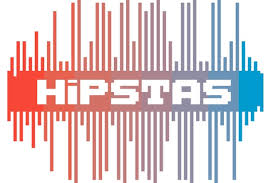 Even digitized, unprocessed sound collections, which hold important cultural artifacts for the humanities such as poetry readings, story telling, speeches, oral histories, and other performances of the spoken word remain largely inaccessible.In order to increase access to recordings of significance to the humanities, Tanya Clement at the University of Texas School of Information in collaboration with David Tcheng and Loretta Auvil at the Illinois Informatics Institute at the University of Illinois, Urbana Champaign have developed the HiPSTAS (High Performance Sound Technologies for Access and Scholarship), which is currently being funded by an NEH Institute for Advanced Topics in the Digital Humanities grant and an NEH Preservation and Access Grant to develop and evaluate a computational system for archivists, librarians, and humanists for discovering and analyzing sound collections. The main premise behind HiPSTAS is that if we don’t use sound collections, we will not preserve. To this end, HiPSTAS has brought together humanists interested in sound scholarship, stewards of sound collections, and computer scientists and technologists versed in computational analytics and visualizations of sound to develop more productive tools for advancing scholarship in spoken text audio. This talk will introduce the project, the participants, and the processes and share early results.
Even digitized, unprocessed sound collections, which hold important cultural artifacts for the humanities such as poetry readings, story telling, speeches, oral histories, and other performances of the spoken word remain largely inaccessible.In order to increase access to recordings of significance to the humanities, Tanya Clement at the University of Texas School of Information in collaboration with David Tcheng and Loretta Auvil at the Illinois Informatics Institute at the University of Illinois, Urbana Champaign have developed the HiPSTAS (High Performance Sound Technologies for Access and Scholarship), which is currently being funded by an NEH Institute for Advanced Topics in the Digital Humanities grant and an NEH Preservation and Access Grant to develop and evaluate a computational system for archivists, librarians, and humanists for discovering and analyzing sound collections. The main premise behind HiPSTAS is that if we don’t use sound collections, we will not preserve. To this end, HiPSTAS has brought together humanists interested in sound scholarship, stewards of sound collections, and computer scientists and technologists versed in computational analytics and visualizations of sound to develop more productive tools for advancing scholarship in spoken text audio. This talk will introduce the project, the participants, and the processes and share early results.
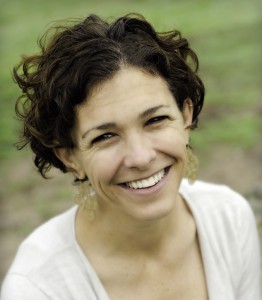 Tanya Clement is an Assistant Professor in the School of Information at the University of Texas at Austin. She has a PhD in English Literature and Language and an MFA in fiction. Her primary area of research centers on scholarly information infrastructure as it impacts academic research, research libraries, and the creation of research tools and resources in the digital humanities. She has published in American Literary History, Digital Humanities Quarterly, Digital Studies / Le champ numérique, Jacket2, the Journal of the Text Encoding Initiative, Library Quarterly, Literary and Linguistic Computing, and Texas Studies in Literature and Language. Some of her digital projects include High Performance Sound Technologies for Access and Scholarship (HiPSTAS) (http://blogs.ischool.utexas.edu/hipstas/), which has received funding from the National Endowment for the Humanities, and ProseVis (http://tclement.ischool.utexas.edu/ProseVis/), which was awarded “Best Infovis” in the 2012 Digital Humanities Awards as part of the NEH-funded “A Thousand Words: Advanced Visualization for the Humanities” project at the Texas Advanced Computing Center (TACC).
Tanya Clement is an Assistant Professor in the School of Information at the University of Texas at Austin. She has a PhD in English Literature and Language and an MFA in fiction. Her primary area of research centers on scholarly information infrastructure as it impacts academic research, research libraries, and the creation of research tools and resources in the digital humanities. She has published in American Literary History, Digital Humanities Quarterly, Digital Studies / Le champ numérique, Jacket2, the Journal of the Text Encoding Initiative, Library Quarterly, Literary and Linguistic Computing, and Texas Studies in Literature and Language. Some of her digital projects include High Performance Sound Technologies for Access and Scholarship (HiPSTAS) (http://blogs.ischool.utexas.edu/hipstas/), which has received funding from the National Endowment for the Humanities, and ProseVis (http://tclement.ischool.utexas.edu/ProseVis/), which was awarded “Best Infovis” in the 2012 Digital Humanities Awards as part of the NEH-funded “A Thousand Words: Advanced Visualization for the Humanities” project at the Texas Advanced Computing Center (TACC).
Announcing the CUNY DHI Spring 2014 Speaker Series
On 26, Feb 2014 | In Uncategorized | By Amanda Licastro
We are pleased to announce our schedule of events for the spring semester at the Graduate Center, CUNY. More information about each event will be posted, so please follow this blog and our twitter feed @cunydhi for updates.
Andrew Stauffer (UVA) – Feb. 19, 6:30-8:30pm in room C205 – “”Postcard from the Volcano: The Research Library after Wide-Scale Digitization.”
Tanya Clement (UT-Austin)– March 5th, 6:30-8:30pm in room C197 – “HiPSTAS, What?: Information Retrieval, Machine Learning, and Visualizations with Sound” (details here).
Doug Rushkoff – March 12th, 3:45pm in room C202 – “Technology as Classroom: the media environment as pedagogy.” Co-Sponsored with the Center for the Humanities.
Miriam Posner (UCLA) – March 27, 6:30-8:30pm in room C202 – A presentation on digital pedagogy. Co-Sponsored by The Fordham Digital Humanities Working Group
Jonathan Hope, “Flatlands: Book History, Literary Criticism, and Hyperdimensional Geometry.” – April 2, 2014, 2pm-4pm, Room 6495 – co-sponsored with the Renaissance Studies Certificate Program.
Around CUNY in 100 Minutes“- Time/Room/Title TBA. If you are a member of the CUNY community and working on a DH project consider showcasing it in a 5 minute “lightning talk.” Please contact us @cunydhi (or email amanda[dot]licastro[at]gmail.com) for details.
Lauren Klein (Georgia Tech)– April 10th, 7pm-9pm (room TBD) – “The Long Arc of Visual Display.”
Ying Zhu and Jason Ng – April 30th, 6:30 PM in room C197 – Chinese Media Censorship. Co-sponsored by The Center for the Humanities; the Interactive Technology and Pedagogy Certificate Program, CUNY Graduate Center; Department of Media Culture, College of Staten Island; CUNY Graduate School of Journalism.
THATCamp Digital Writing – May 2nd at John Jay College, CUNY and May 3rd at Fordham Lincoln Center. Registration opens March 3rd http://digitalwriting2014.thatcamp.org/
DH Praxis Project Launch Event — May 12, 4pm-6pm, Skylight Room, Graduate Center, CUNY
Andrew Stauffer “Postcard from the Volcano: The Research Library after Wide-Scale Digitization,” Wed. 2/19, 6:30-8:30pm
On 13, Feb 2014 | In Uncategorized | By Amanda Licastro
Please join CUNY DHI and the Digital Praxis Seminar for a talk by Andrew Stauffer, “Postcard from the Volcano: The Research Library after Wide-Scale Digitization.”
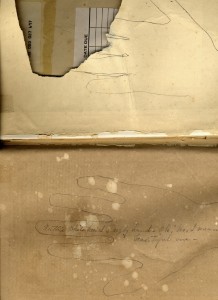 What will become of the print collections? As the historical record is translated to digital forms, academic research libraries are under pressure to manage down their physical holdings and repurpose stack space. In this presentation. I address our need as humanities scholars for a hybrid print-digital environment, one that takes rich advantage of digital technologies even as it finds new ways of seeing individual printed volumes. The 19th-century book — plentiful, out of copyright, often in poor condition — is at particular risk in the coming decade. My conviction is that the vulnerability of this material is bound up with its particular value to our cultural moment, that we are deaccessioning books at precisely the moment when we are most in need of their particular lessons regarding modern media, reading habits,and academic institutions. In this presentation, I focus primarily on personal marginalia in copies of nineteenth-century books, demonstrating the importance of individual copies to our understanding of what books as media – especially books of poetry – were for. In addition, I introduce several initiatives aimed at getting scholars and library policy makers together to chart a course for the future of the print record in our libraries.
What will become of the print collections? As the historical record is translated to digital forms, academic research libraries are under pressure to manage down their physical holdings and repurpose stack space. In this presentation. I address our need as humanities scholars for a hybrid print-digital environment, one that takes rich advantage of digital technologies even as it finds new ways of seeing individual printed volumes. The 19th-century book — plentiful, out of copyright, often in poor condition — is at particular risk in the coming decade. My conviction is that the vulnerability of this material is bound up with its particular value to our cultural moment, that we are deaccessioning books at precisely the moment when we are most in need of their particular lessons regarding modern media, reading habits,and academic institutions. In this presentation, I focus primarily on personal marginalia in copies of nineteenth-century books, demonstrating the importance of individual copies to our understanding of what books as media – especially books of poetry – were for. In addition, I introduce several initiatives aimed at getting scholars and library policy makers together to chart a course for the future of the print record in our libraries.
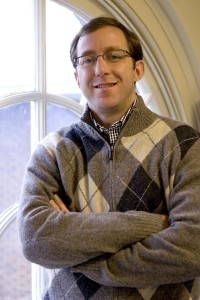 Andrew Stauffer is associate professor of English at the University of Virginia, where he also serves as Director of NINES (Networked Infrastructure for Nineteenth-century Electronic Scholarship) and a member of the teaching faculty of the Rare Book School. He is the author of _Anger, Revolution, and Romanticism_ (Cambridge UP, 2005) and the editor of works by Robert Browning (for Norton) and H. Rider Haggard (for Broadview), and he has published widely on nineteenth-century literature. Stauffer has served as principal investigator on digital humanities grants from Google (for Juxta) and the NEH, and he has received fellowships from the NEH, the ACLS, the Huntington, and the NYPL. His current book project is “Postcard from the Volcano: The Troubled Archive of Nineteenth Century Literature.”
Andrew Stauffer is associate professor of English at the University of Virginia, where he also serves as Director of NINES (Networked Infrastructure for Nineteenth-century Electronic Scholarship) and a member of the teaching faculty of the Rare Book School. He is the author of _Anger, Revolution, and Romanticism_ (Cambridge UP, 2005) and the editor of works by Robert Browning (for Norton) and H. Rider Haggard (for Broadview), and he has published widely on nineteenth-century literature. Stauffer has served as principal investigator on digital humanities grants from Google (for Juxta) and the NEH, and he has received fellowships from the NEH, the ACLS, the Huntington, and the NYPL. His current book project is “Postcard from the Volcano: The Troubled Archive of Nineteenth Century Literature.”
Also, join NYC DH for a #digibar meet-up after this event at The Archive. Updates posted here: http://nycdh.org/groups/digibar/
Larry Smarr on Digital Culture and the Future Internet: Wed, 10/30
On 28, Oct 2013 | In Uncategorized | By Amanda Licastro
Wednesday, Oct 30th, 2013, 6:00pm, Room C205 at the Graduate Center, CUNY.
This event is co-sponsored by the the DH Praxis Seminar and the Center for the Humanities: http://centerforthehumanities.org/events/Digital-Culture-and-the-Future-Internet.
This event is free and open to the public, registration is not mandatory.
Please reserve you space here: http://cunydhi-smarr.eventbrite.com
Larry Smarr
Professor Larry Smarr is a physicist and leader in scientific computing, supercomputer applications, and Internet infrastructure at the University of California, San Diego. In 2000, Smarr moved to California and proposed the creation of the California Institute for Telecommunications and Information Technology (Calit2), linking departments and researchers at UCSD and UC Irvine. Smarr currently serves as Institute Director of Calit2.
Digital Culture and the Future Internet
Join Larry Smarr, founding Director of the California Institute for Telecommunications and Information Technology (Calit2), as he explores the future of the Internet and digital culture. The Institute develops next generation of information technologies, including optical networks, information visualization, and global telepresence. Under Smarr’s leadership, Calit2 also supports a wide range of innovative projects in digital humanities and in digital art. In these projects, humanists and artists collaborate with scientists to explore potential of new technologies which will not become widely available for another 10-15 years.
To join the digital conversation, use the hash tags: #digitalgc and #cunydhi
William J. Turkel, ” The Hands-On Imperative”- Mon 10/21, 4:15pm-5:30pm, Skylight Room (9100)
On 17, Oct 2013 | In Events of Interest | By Amanda Licastro
Please join CUNY DHI and the Digital Praxis Seminar in welcoming William Turkel for a talk on physical computing and the humanities.
This event will take place Monday, 10/21, from 4:15pm-5:30pm, in the Skylight Room (9100).
This event is free to attend and open to the public. We request you RSVP here, but registration is not mandatory:
http://cunydhi-turkel.eventbrite.com/
William Turkel is engaged in computational history, big history, STS, physical computing, desktop fabrication and electronics. His new monograph, Spark from the Deep, is now available. Turkel is currently working on a study of attempts to build a self-replicating device, from the machine tools of the Industrial Revolution to the RepRaps of today. As part of this research, he has built a series of 3D printers and other CNC tools. The other project Turkel is working on is a study of mid-20th-century analog electronic computing. Turkel teaches Max 6 programming to undergraduates in Western’s new digital humanities option, and to grad students in the interactive exhibit design course. Turkel is also teaching a new graduate course on digital research methods that makes use of command line tools in Linux virtual machines. You can find him on Twitter at @williamjturkel

![top-73-censored-weibo[1]_0](https://cunydhi.commons.gc.cuny.edu/files/2014/04/top-73-censored-weibo1_0-300x254.jpg)

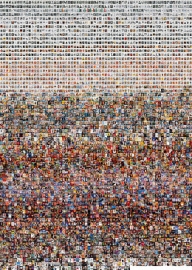
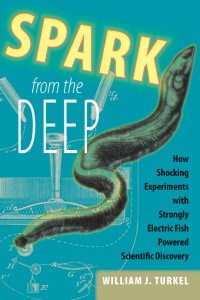
 Welcome to the blog of the CUNY DHI, an effort to build momentum and community around Digital Humanities practitioners at CUNY. We hope you'll join us at our upcoming events and that you'll follow this blog to hear about the latest news in the field.
Welcome to the blog of the CUNY DHI, an effort to build momentum and community around Digital Humanities practitioners at CUNY. We hope you'll join us at our upcoming events and that you'll follow this blog to hear about the latest news in the field.



Recent Comments